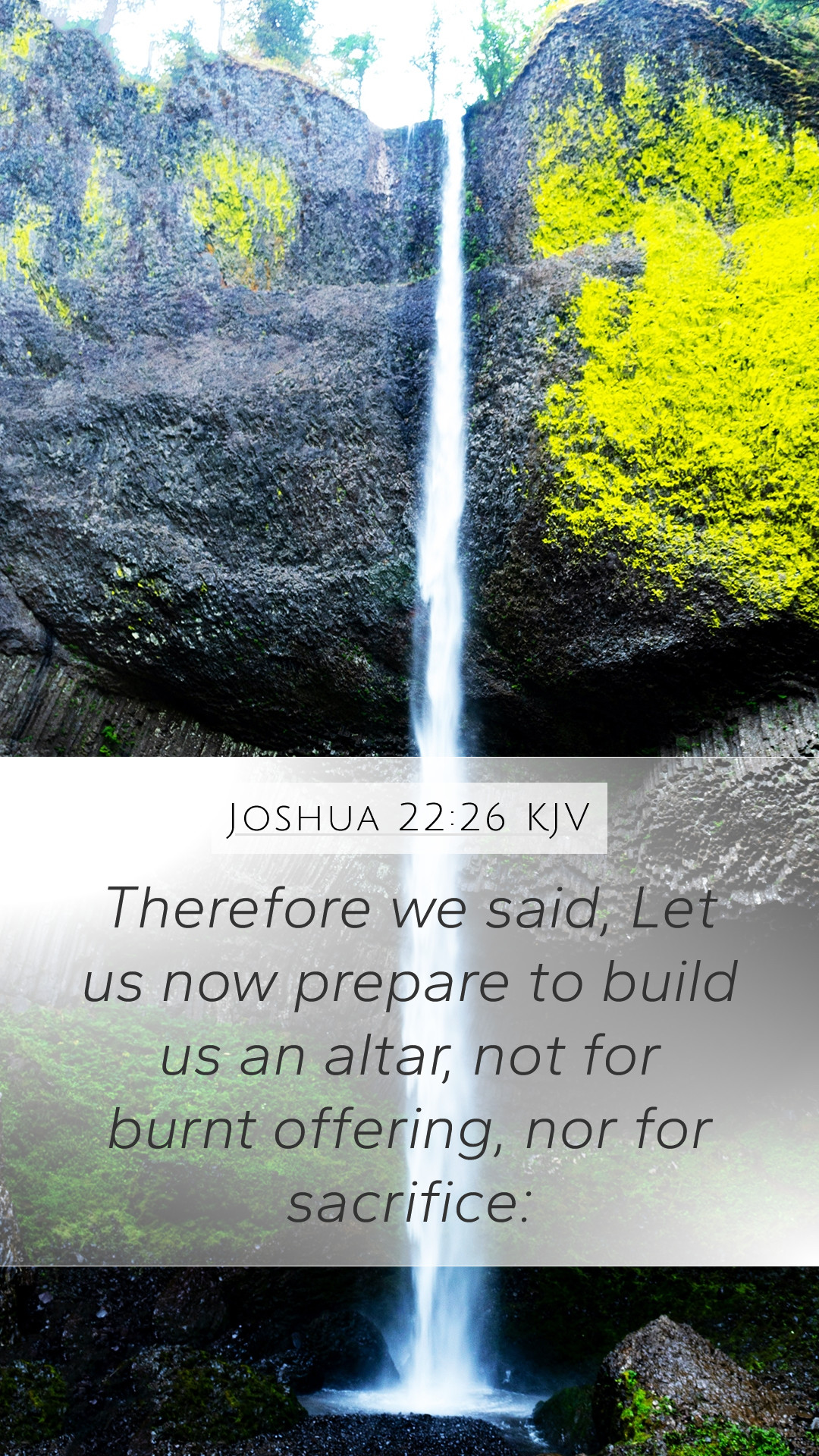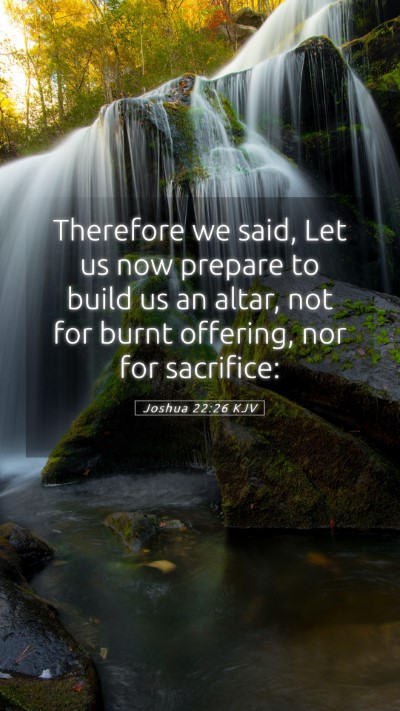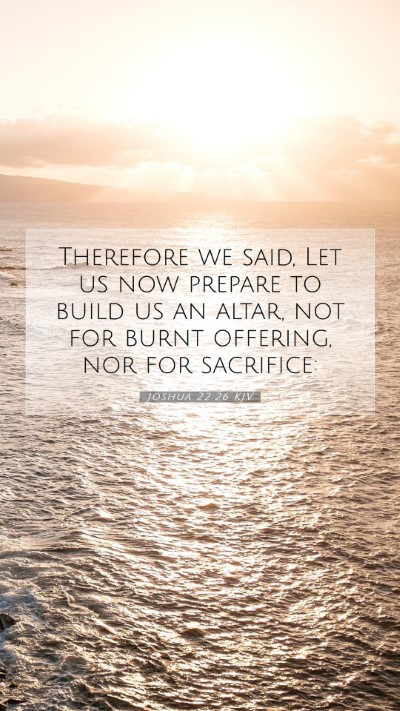Understanding Joshua 22:26
Verse: "Therefore we said, Let us now prepare to build us an altar, not for burnt offering, nor for sacrifice:"
Bible Verse Meaning
The verse from Joshua 22:26 presents a significant moment in biblical history, where the tribes of Reuben, Gad, and the half-tribe of Manasseh express their intentions to build an altar. This action is pivotal for understanding the function of altars in the Old Testament and the context of their community's relationship with God.
Bible Verse Interpretations
- Community Identity: This verse illustrates a concern for communal identity, emphasizing that the tribes were not turning away from God, but seeking a way to maintain their religious practices in their new land.
- Prevention of Misunderstanding: The construction of the altar was intended to prevent spiritual division and ensure that future generations would recognize their connection to the core worship practices of Israel.
Insights from Commentaries
Matthew Henry's Commentary
Matthew Henry notes that the tribes' proposal speaks to their desire to honor God in a way that reflects their circumstances. He emphasizes that their intentions were not rooted in rebellion but in the preservation of their faith among potential misunderstandings from the Israelites.
Albert Barnes' Notes
Albert Barnes explains that the altar was seen not as a place for sacrifices but as a witness or reminder of their shared faith. He highlights that their request was motivated by a desire for unity and oversight between the tribes.
Adam Clarke's Commentary
Adam Clarke adds that the phrase "not for burnt offering, nor for sacrifice" indicates that while they respected the Jerusalem altar’s exclusive function for sacrifices, they intended to establish a symbol of their allegiance to Yahweh.
Implications of the Verse
- Understanding Scripture: This verse offers insights into the complexities of Old Testament worship practices and the importance of intent behind actions.
- Bible Study Insights: When interpreting this passage, consider how it reflects broader themes of identity, belonging, and worship among God’s people.
Related Cross References
- Numbers 32:16-19 - Discusses the request of the two and a half tribes for land east of the Jordan.
- Joshua 22:10 - Mentions the actual building of the altar.
- Exodus 20:24 - Instructions concerning the use of altars in worship.
Conclusion
In summary, Joshua 22:26 serves as a vital narrative that encapsulates themes of identity, worship, and community within the history of Israel. By understanding this verse, one gains deeper insights into biblical worship practices and the communal dynamics that shaped the faith of the Israelites.


